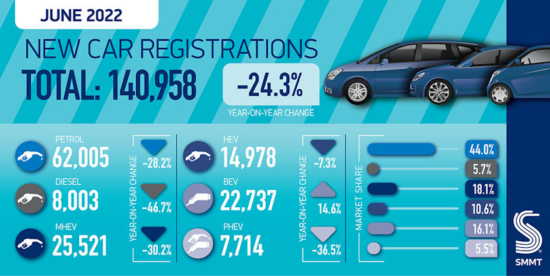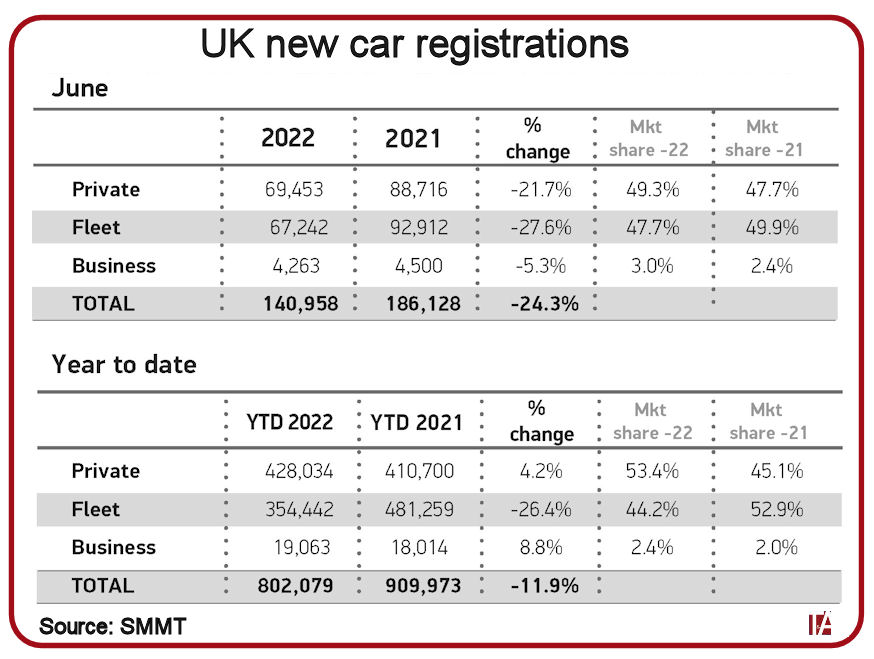June car registrations down a quarter

UK new car registrations fell 24.3 per cent year-on-year in June. According to figures released by the Society of Motor Manufacturers and Traders (SMMT), 140,958 new vehicles were registered during the month, the weakest June performance since 1996.
The decline heavily affected registrations of conventional ICE vehicles – registrations of petrol and diesel cars were down 28.2 per cent and 46.7 per cent compared with June 2021 – but plug-in hybrid electric vehicle (PHEV) uptake also fell 36.5 per cent year-on-year, to 7,714 units during the month. Only battery electric vehicles (BEVs) continued their growth streak, increasing 14.6 per cent year-on-year. Their market share has now reached 16.1 per cent, up from 10.7 per cent a year earlier.
Declines were most significant in large fleets, which recorded a 27.6 per cent fall in registrations, while private consumer volumes dropped by a more modest 21.7 per cent. As a result, the fleet and business share of the market reduced to 50.7 per cent as manufacturers prioritised private consumers in the supply-constrained environment.
YTD registrations
Given the ongoing shortages of essential components, exacerbated by pandemic restrictions in China, global vehicle production has struggled to keep up with demand throughout 2022. New car registrations for the year to date have fallen by 11.9 per cent to 802,079 units – the weakest first half year performance since 1992, with the exception of 2020. Some 107,894 fewer new cars have been registered during the first half of 2022 compared with the same period last year – despite demand in 2021 being restricted by dealership lockdowns until April, with consumers only able to buy vehicles through click and collect.
“The semiconductor shortage is stifling the new car market even more than last year’s lockdown,” comments Mike Hawes, SMMT chief executive. “Electric vehicle demand continues to be the one bright spot, as more electric cars than ever take to the road, but while this growth is welcome it is not yet enough to offset weak overall volumes, which has huge implications for fleet renewal and our ability to meet overall carbon reduction targets. With motorists facing rising fuel costs, however, the switch to an electric car makes ever more sense and the industry is working hard to improve supply and prioritise deliveries of these new technologies given the savings they can afford drivers.”


 GB Tyres
GB Tyres
Comments